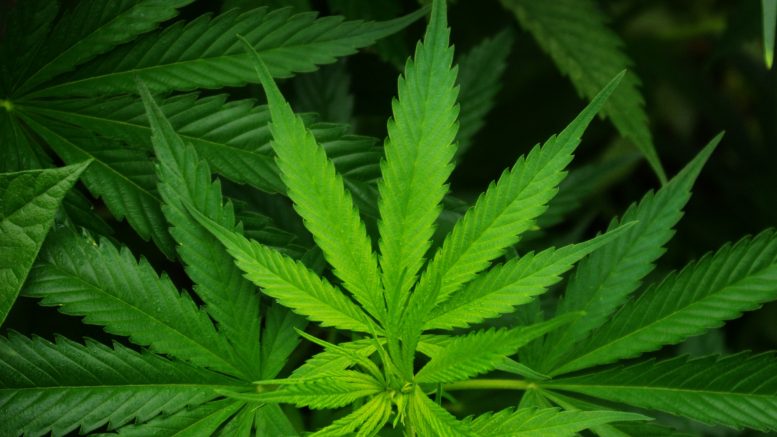As of May 2016, Marijuana use is legal in 25 states for recreational and/or medical use however, a recent research study by FIU psychologist Elisa Trucco suggests that the drug may have detrimental effects on users in the long run.
According to Trucco, her study, supported by the National Institutes of Health, found that long-term use of marijuana impaired participants’ natural response to reward by reducing it. As one of the authors of the study, Trucco said they were interested in testing out two factors: (1) whether differences in the brain’s response to reward put adults at risk for marijuana use and (2) whether marijuana use had a negative impact on the brain’s response to reward.
Science has demonstrated that a person’s ability to feel pleasure is both regulated and controlled by the brain’s reward center. “Feeling pleasure motivates us to repeat behaviors that are critical for our existence such as eating a juicy burger, earning money, and having sex,” said Trucco.
108 20-year-olds’ brains’ were scanned using functional magnetic resonance imaging at approximately two-year intervals, the first time at age 20, the second at age 22, and the third at age 24. They were recruited from the Michigan Longitudinal Study. An outgoing study, which began in the 1980s, that follows two contrast samples of groups from the same neighborhood: youth at high risk for addiction and youth not at risk for addiction.
Prior to beginning the study, the participants were asked to complete a questionnaire on their alcohol and drug use, which included cigarette and marijuana use.
While in the fMRI, they were instructed to click a button the moment they saw a target appear in the screen in front of them.
Before starting the experiment, the participants were told they could either win money which ranged from 20 cents to $5, lose money, or have no reward or loss.
“Normally when completing this task, participants’ brains show lots of activity in areas that respond to reward when they think they have won money,” said Trucco.
What they discovered, however, was that this particular response showed less activity in reward centers of the brains of those who used marijuana. It suggests that marijuana use led to reductions in the participant’s’ natural response to reward. There was no evidence whatsoever that differences in response to reward had an impact on later marijuana use.
“This means that something that would be rewarding to most people was no longer rewarding to them, suggesting, but not proving, that their reward system has been ‘hijacked’ by the drug, and that they need the drug to feel reward — or that their emotional response has been dampened,” said lead author and University of Michigan neuroscientist Mary Heitzeg, in a press release.
According to Trucco, with the growing misconception that marijuana use has no long-lasting effects on the brain, it is expected that at least 11 more states are likely to legalize recreational marijuana use in the near future.
“I think with the recent legislation (legalization and approved medical use in some states) there is a growing false impression that marijuana is a safe drug. This study provides convincing evidence to the contrary. Over time, marijuana can reduce the pleasure we experience from these natural rewards that we experience from the world around us,” said Trucco.
More research needs to be done to in order to see what long-term impact the reduction in the brain’s response to reward can have on mental health and function.
“This type of research is necessary to understand the potential negative consequences of marijuana use on the brain,” said Trucco.
Alumnus Gema Cuadra with a B.A. in psychology does not completely agree with the study.
“You have to first be in tuned with yourself to fully know if you’re benefiting or being hindered by marijuana use,” said Cuadra.
“If productivity, happiness (oneself and others) and health (mental, emotional and physical health) is increased or kept constant with marijuana use than it would be intelligent to keep utilizing it. If it decreases or hinders your productivity, happiness and health, than it would be intelligent to not utilize it. All in all, the effects both negative or positive of marijuana use are dependent on the user.”
Trucco believes another possible factor to test is whether blunted reward activation leads to drug dependence or other mental health problems. There are also plans to further expand the research study by focusing on younger participants, specifically children and adolescents, to test what leads individuals to start using marijuana.
“As of right now, at my lab at FIU, Research on Adolescent and Child Health, we are testing how genetic factors, childhood personality, and adolescent depression may increase risk for using marijuana use in adolescence,” said Trucco.
Trucco is also collaborating with FIU faculty in cognitive psychology, social work, and epidemiology on a new grant to see whether electronic cigarettes and vaping are a gateway drug for marijuana use among South Florida youth.
In addition, one of her other projects include working with Angela Laird, Raul Gonzalez, and a group of other colleagues at FIU on the NIH’s landmark study on Adolescent Brain Cognitive Development.
ABCD is a nationwide study taking place over the next 10 years and will examine how brain development impacts the health and functioning of adolescents, including marijuana use.
“I think it is important to be informed about research on marijuana use and potential dangers of use, especially before casting a vote on marijuana legislation,” said Trucco. “Because research shows that marijuana may not be as safe as some people think.”
For more information concerning the current work of Trucco and other publications from the FIU Research on Adolescent and Child Health, visit reachlab.fiu.edu.






All the data needed for an informed decision on cannabis legalization has already been collected and can be found at the CDC web site.
Figures directly from the CDC dot gov web site
Numbers of deaths per year in the USA
* Prescription Drugs: 237,485 + 5000 traffic fatalities
* Tobacco: 390,323
* Alcohol: 88,013 + 16,000 traffic fatalities
* Cocaine: 4,906
* Heroin: 7,200
* Aspirin: 466
* Acetaminophen (Tylenol): 179
* Marijuana: 0, none, not a single fatal overdose in all medical history and almost no traffic problems.
So, which is safer????
So they found that Marijuana can help people with a gambling addiction?
And?
“If productivity, happiness (oneself and others) and health (mental, emotional and physical health) is increased or kept constant with marijuana use than it would be intelligent to keep utilizing it”
It’s pretty obvious medicines improve productivity; reflected here: http://www.marijuana.com/blog/news/2016/07/study-states-with-medical-marijuana-observe-decline-in-sick-time-taken-by-employees
Backed up by the number of prescriptions for ailments cannabis treats has dropped in medical marijuana states: https://www.pharmacist.com/study-finds-drop-prescription-drugs-medical-marijuana-states
There are a few things to keep in mind with this study:
1. Rats are not humans
2. It could be said that the rats who did not use THC/CBD (2 of the 400+ compounds within cannabis) over-consumed sugar. THC causes neurogenesis, so the rats on THC would have been more content exploring their mind, and making new connections rather than over-eating sugar.